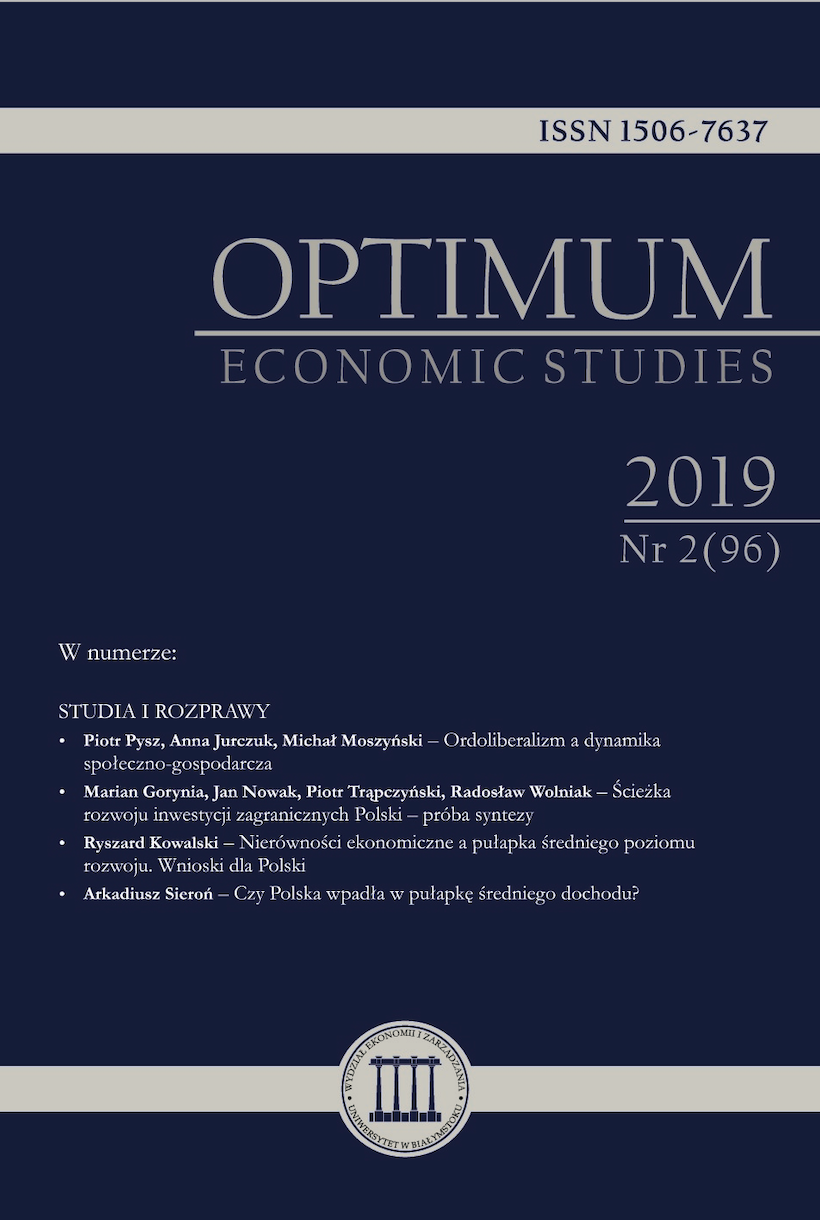Nierówności ekonomiczne a pułapka średniego poziomu rozwoju. Wnioski dla Polski
Economic inequality and the middle-income trap. Implications for Poland
Author(s): Ryszard KowalskiSubject(s): Economy, National Economy
Published by: Wydawnictwo Uniwersytetu w Białymstoku
Keywords: growth theory; middle income trap; total factor productivity; economic inequality;
Summary/Abstract: Purpose – This paper examines empirical controversies about the middle-income trap concept and presents the analysis of the relationship between economic inequality and the middle income trap. It also discusses the significance of inequality as a potential barrier for Poland’s economic growth in the long-term perspective. Research method – A critical literature review and data from OECD statistics database were used to assess the impact of inequalities on economic growth and the significance of inequality as a risk factor for Poland’s economic growth. Results – Empirical approaches are subject to the limitations as they rely on arbitrary assumptions to define time and income thresholds when assessing whether a country is caught in a middle-income trap. The analysis shows that the growth slowdown in the countries “trapped” at the middle-income level result mainly from the slowdown of the total factor productivity growth and that high levels of inequality have negative impact on productivity determinants, therefore on growth. However, given the moderate level of income inequality, it seems that in the case of Poland some other internal barriers to growth are among the most important ones. Originality/value – Understanding the role of economic inequality in explaining total factor productivity growth is crucial in devising appropriate policy measures that may help to avoid the middle-income trap.
Journal: Optimum. Economic Studies
- Issue Year: 96/2019
- Issue No: 2
- Page Range: 37-52
- Page Count: 16
- Language: Polish

